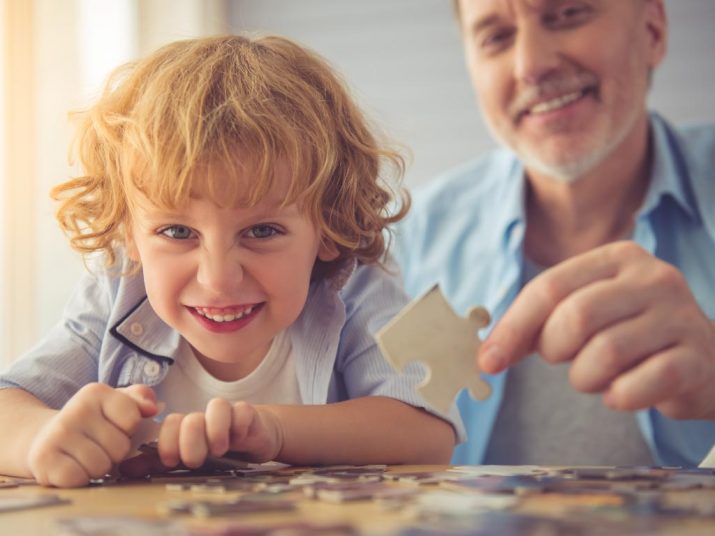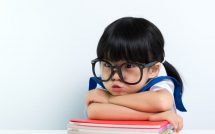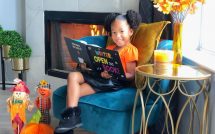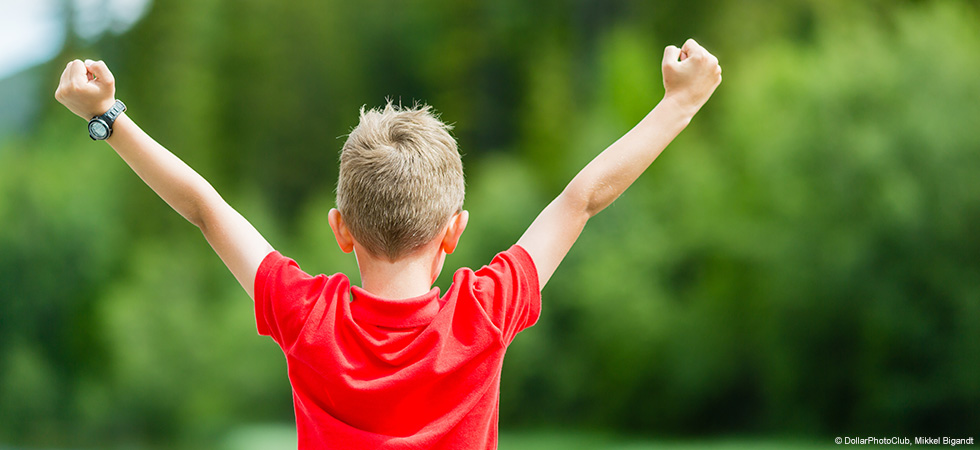
Puzzles have always offered fun family entertainment, but did you know they also help your child’s development? These fantastic learning tools help children develop cognitive skills, fine motor skills, and so much more. In addition to these skills, completing a puzzle gives a child gives a sense of accomplishment, encouraging self-confidence. Children love to play and explore. At a very young age, children are curious about the world around them. By introducing puzzles into your child’s playtime, you may see profound physical and emotional developments. Learn about some of the specific ways puzzles can directly benefit your child.
5 Ways Puzzles Help a Child’s Development
Hand-Eye Coordination
Puzzles help a child develop shape recognition. Children will learn how to recognize shapes, visualize how they fit together, and coordinate motor function so their hands respond and place each piece in the right spot. Babies and toddlers can be quite clumsy at times because they are still building their fine motor skills. Daily tasks like pouring juice or buttoning a shirt are challenging for this reason. Puzzles require precise, small movements and develop a child’s fine motor skills.
We recommend 24-piece puzzles for toddlers. The puzzles come with larger pieces, which are safer and easier for small chubby hands to hold and piece together. For older children, a 500-piece puzzle presents a fun challenge that the child can enjoy with their whole family. Personalized puzzles are especially beneficial for engaging children and families. These puzzles can feature a child’s name, helping them build reading skills by teaching them how to spell and read their name. Custom puzzles can also feature photos or family names
Problem-Solving Skills
Puzzles are fun games, but they also teach children about a larger concept: how to solve a problem. When presented with so many pieces, children must strategize to figure out how all the pieces fit together. When a piece doesn’t fit, they must make decisions in the moment and move forward. Puzzles are perfect learning tools for teaching little ones how to accomplish tasks. As children learn this skill, they will be better able to perform larger tasks like cleaning up a spill, buttoning their clothes, grabbing a snack or finding a lost toy. When children learn problem-solving skills, they become more independent. They can rely on themselves to work through a problem and succeed. This leads to a sense of accomplishment, which in turn builds a child’s self-esteem.
Goal Setting and Patience
Puzzles present a simple and defined goal: put the pieces together to complete the image. Kids are presented with a fun challenge where the goal is clear. They must use their critical thinking skills to work toward the goal. Preschoolers typically don’t need to set many goals for themselves, because many things are done for them. So puzzles may be one of the first times they are presented with a challenge where they need to set a goal. Goal setting is important because it teaches children about hard work and rewards. This skill will help them later in life, when they will set more educational goals or personal goals. In addition, goal setting helps teach and build a child’s patience. Little kids can become frustrated easily. This is, in part, because their motor functions are still developing. Puzzles teach a child to be patient. Every puzzle piece is another small success toward the goal. As your own child puts the pieces together, celebrate these small victories to build their confidence and reward their patience.
Sorting and Organizational Skills
Puzzles teach children the basics of sorting, which also improves their ability to organize. Little kids will learn to sort puzzle pieces based on shapes and colors. A parent or grandparent can also suggest this to the child, to help them problem solve. By sorting their pieces, little kids will discover that they are more organized. Sorting makes it easier to locate the right pieces for each space. In turn, this skill will help improve a child’s spatial awareness and shape recognition. All of these skills prepare kids for school learning. As kids learn how to recognize shapes and organize them, they will be better equipped to learn letters and numbers. They can use the same strategies with puzzles as they do with learning the alphabet.
Math Skills and Fractions
Puzzles teach children about the concept of a “whole” and that each piece is a fraction of that whole. Little do they realize that when they are putting a puzzle together, they are also learning basic math! A parent or grandparent can encourage this learning by grabbing a few pieces and asking: What is the fraction if I have 3 pieces in my hand, and there are 24 pieces on the floor? As the child sorts pieces by color or shape, the adult can also ask: What is the fraction of red pieces compared to the total pieces? What is the fraction of edge pieces?
Memory Improvement
Puzzles can help improve a child’s short-term memory. As the child tries different pieces, they may remember a previous piece that has the color and shape they need. The child will locate that piece and pop it in. Puzzles keep the mind active and engaged. To further their memory building skills, children should try putting the same puzzle together repeatedly. Each time they do, they boost their memory by remembering where certain pieces go. Each time, it becomes easier to remember where to put the pieces. This memory practice is beneficial for preschoolers and older children.
We hope this guide has helped you discover all the ways puzzles boost a child’s development!
Resources:
https://premiumjoy.com/blog/advantages-of-puzzles-for-child-development/



